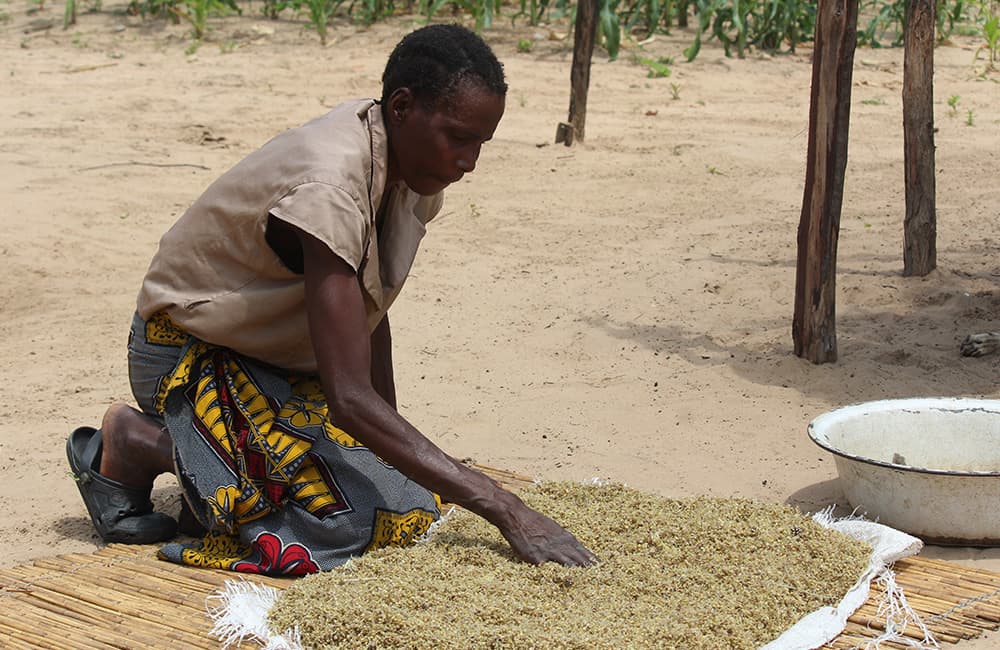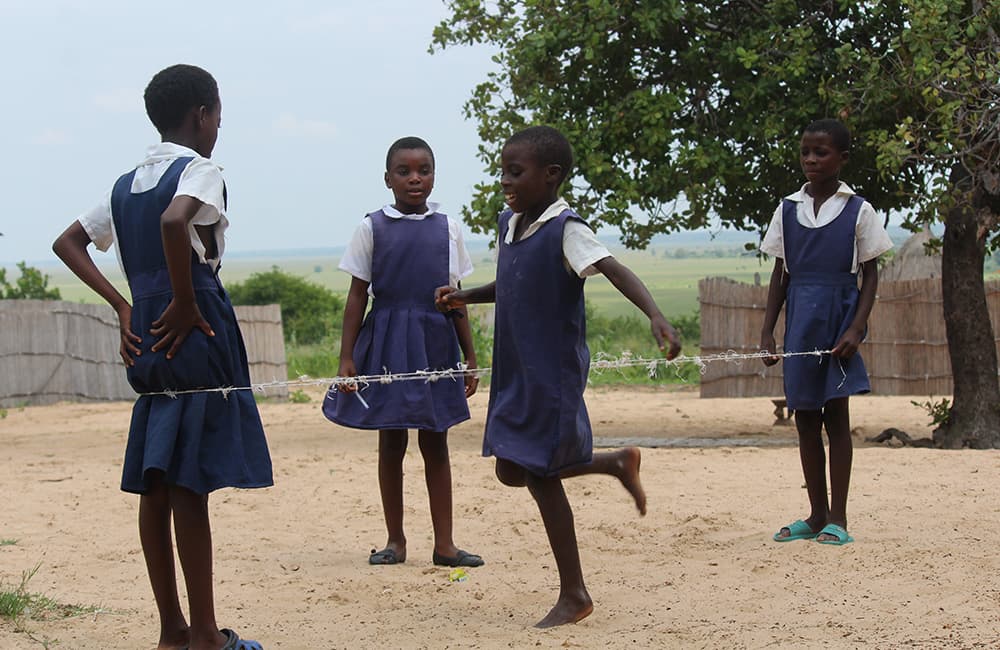Fed at home and at school

Alice, 68, sorts through grain in the yard of her home.
Save the Children supporters have provided Kabukabu and her family with food at home, and at school. At home, they’re eating maize (corn) and beans.
“Since we received the mealie meal, beans and cooking oil from Save the Children, we no longer go out to look for casual work. We now spend more time on preparing and managing our own farm. If the rains are good this season, we are hopeful that we will grow enough food to last us for at least a year.
The difference it’s made to their lives cannot be underestimated.
“On the day I was called to receive the food, I could not believe this was true but when I actually got the food I was very happy. Without this food, my family and especially the children and grandchildren would have continued sleeping hungry. The children are more playful and happier now. Before the food aid came, they would sleep long hours during the day but now they play more. Kabukabu had stopped going to school because of hunger but after their school started feeding them and we also got the food packs, she now goes to school every day.”
Kabukabu’s dream for the future

Kabukabu and her friends at school.
Now that Kabukabu has enough to eat, she’s dreaming of a future where she’s educated too. “I want all my friends to come to school because we learn a lot of new things such as how to count and I enjoying counting very much. I want to be a teacher when I grow up like my class teacher whom I admire a lot because she is very respected by everyone.”